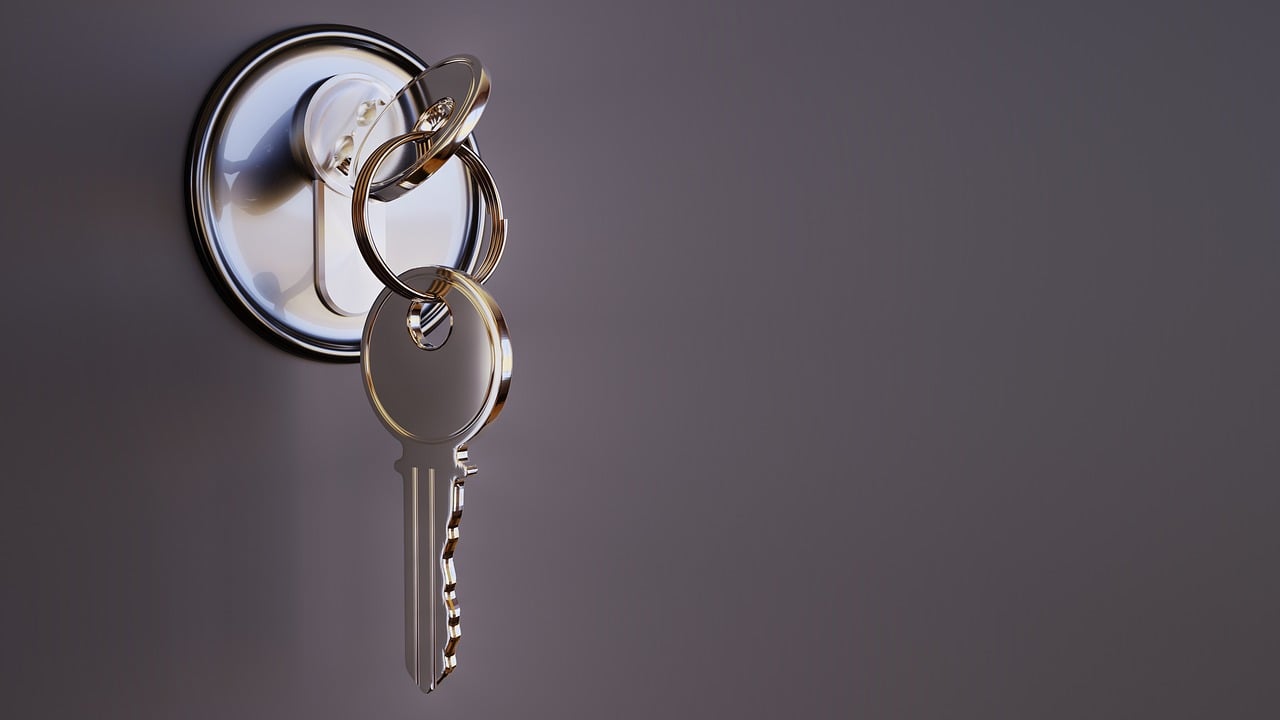When guests arrive at your property, an easy check-in is the first thing they’ll be looking for, especially if they’re arriving late or after a long journey. First impressions count, and a smooth and stress-free arrival sets the tone for their entire stay.
Some hosts prefer a warm in-person welcome, while others opt for the convenience of self check-in using lockboxes or smart locks. Both approaches have pros and cons, and the right choice depends on your property, your lifestyle, and the type of guests you attract. To help you decide which option best fits you, your property, and your Airbnb management style, we discuss the pros and cons of each type of key exchange.
Option 1: In-person key handover
An in-person key exchange may be preferred by hosts who prefer to add a personal touch to the check-in process, which guests won’t experience at traditional hotels. This also gives you the opportunity to resolve any potential concerns during the initial tour of the property.
However, a personal key handover for your STR may not always be possible, especially if you work a full-time job, manage an Airbnb remotely, or own multiple STR properties.
In this scenario, you can either:
- Utilise a key delivery service like Key Ninja, who’ll communicate with the guest on your behalf to perform the key exchange
- Coordinate with the concierge or reception at your property, if available. However, note that this opens up the possibility of getting a negative review if the guest has a bad experience with them, even if they’re not working directly with you.
- Automate the check-in process through self-check-in, where guests can enter your property without a personal key handover. This can either be done with smart locks, lock boxes, or a combination of both.
Option 2: Lockboxes
Lockboxes are secure, mechanical boxes mounted outside your property where keys are stored. Guests simply enter a combination code to retrieve the key, then put it back inside and lock it once more after check-out.
If lockbox onsite is not possible due to body corporate or council regulations or building setup limitations, you can also utilise something like KeyNest for off-site key storage or CondoKey to discreetly store the a lockbox inside your apartment mailbox (if mailboxes are easily-accessible to guests without needing separate keys or fobs).
Pros of lockboxes for Airbnb
- Low cost: Usually $30–$80, no tech setup required.
- Simple and reliable: Easy for guests of all ages to understand, with no dependence on Wi-Fi or electricity.
- Durability: High-quality lockboxes are weatherproof and sturdy.
Cons of lockboxes for Airbnb
- Security risks: Codes need to be changed often; if neglected, former guests may access keys.
- Physical key reliance: Keys can still be lost or copied.
Best for: Hosts looking for a budget-friendly, low-maintenance option, especially for properties in regional or rural areas.
Option 3: Smart locks
Smart locks are Wi-Fi or Bluetooth-enabled devices installed on your door, allowing guests to unlock via codes, apps, or digital keys instead of traditional keys.
Though the upfront costs may seem expensive, smart locks pay for themselves in the long run, as you won't find yourself constantly shelling out money for new locks in case keys get lost.
Pros of smart locks for Airbnb
- Convenience: Guests receive a unique code or link — no physical keys required.
- Enhanced security: Codes can be changed after each stay.
- Remote management: Control access from anywhere, perfect for interstate or international hosts.
- Integration: Many smart locks integrate with Airbnb, automatically generating access codes when a booking is confirmed.
Cons of smart locks for Airbnb
- Higher upfront cost: Installation and purchase can range from $200–$500+.
- Tech dependency: Requires stable Wi-Fi and can be affected by power outages.
- Learning curve: Some guests may find app-based entry confusing.
Best for: Hosts with frequent turnovers, remote property managers, or premium listings where convenience is a priority.
Which should you choose for your property?
If you live near your STR and are available to welcome guests at any time, then an in-person key exchange may still work for you. If you are working with an Airbnb co-host or an Airbnb management company, they may also be able to coordinate with guests for in-person key exchanges (this is subject to a case-by-case basis).
But if you think you’re spending too much time coordinating check-ins and check-outs, especially late arrivals or sudden changes in guest schedules, then you may be better-suited to transitioning to a self-check-in process using a combination lockbox or a digital smart lock. This also has the added benefit of no longer needing to be present for Airbnb cleaning or maintenance for your property.
Streamline guest check-ins and more with professional management
Optimising the guest experience doesn’t stop at just key management — it involves all aspects of their stay from pricing, communication, amenities, reviews, and more. If you’re struggling with managing guests or getting good reviews, consider partnering with a professional property manager like Hometime.
With Hometime, you’ll get a team of experts dedicated to boosting your revenue, taking care of the day-to-day, and helping your property reach its full potential. Whether you're seeking stronger returns, better guest reviews, or less time in your inbox, we’re here to help.
Schedule an obligation-free chat with Hometime to learn more our full-service Airbnb management services and get a free earnings estimate:





